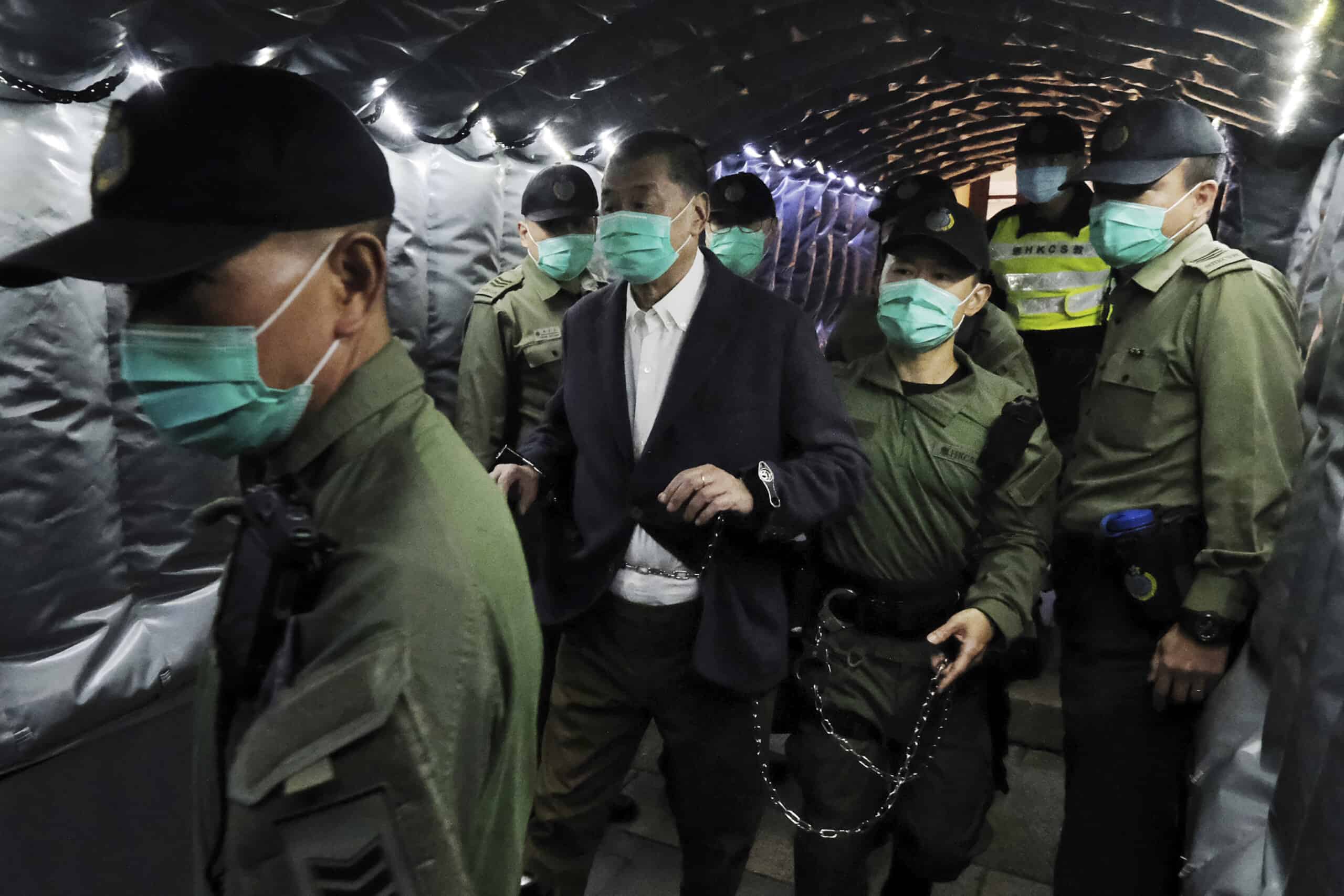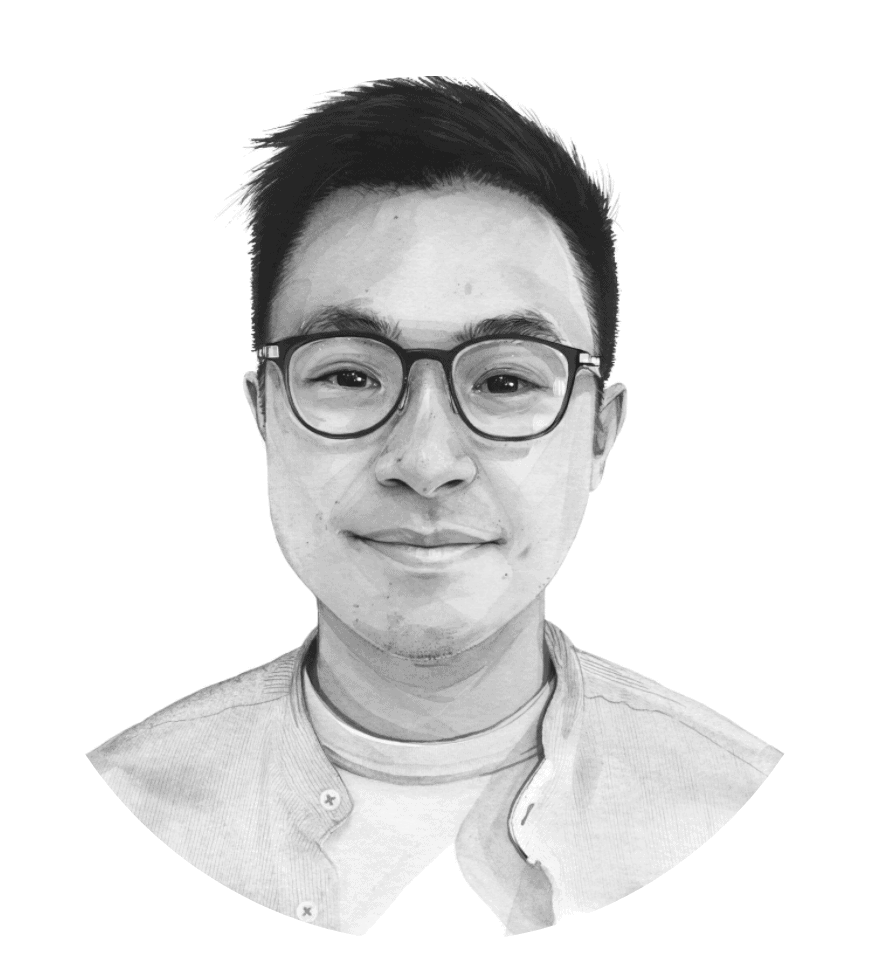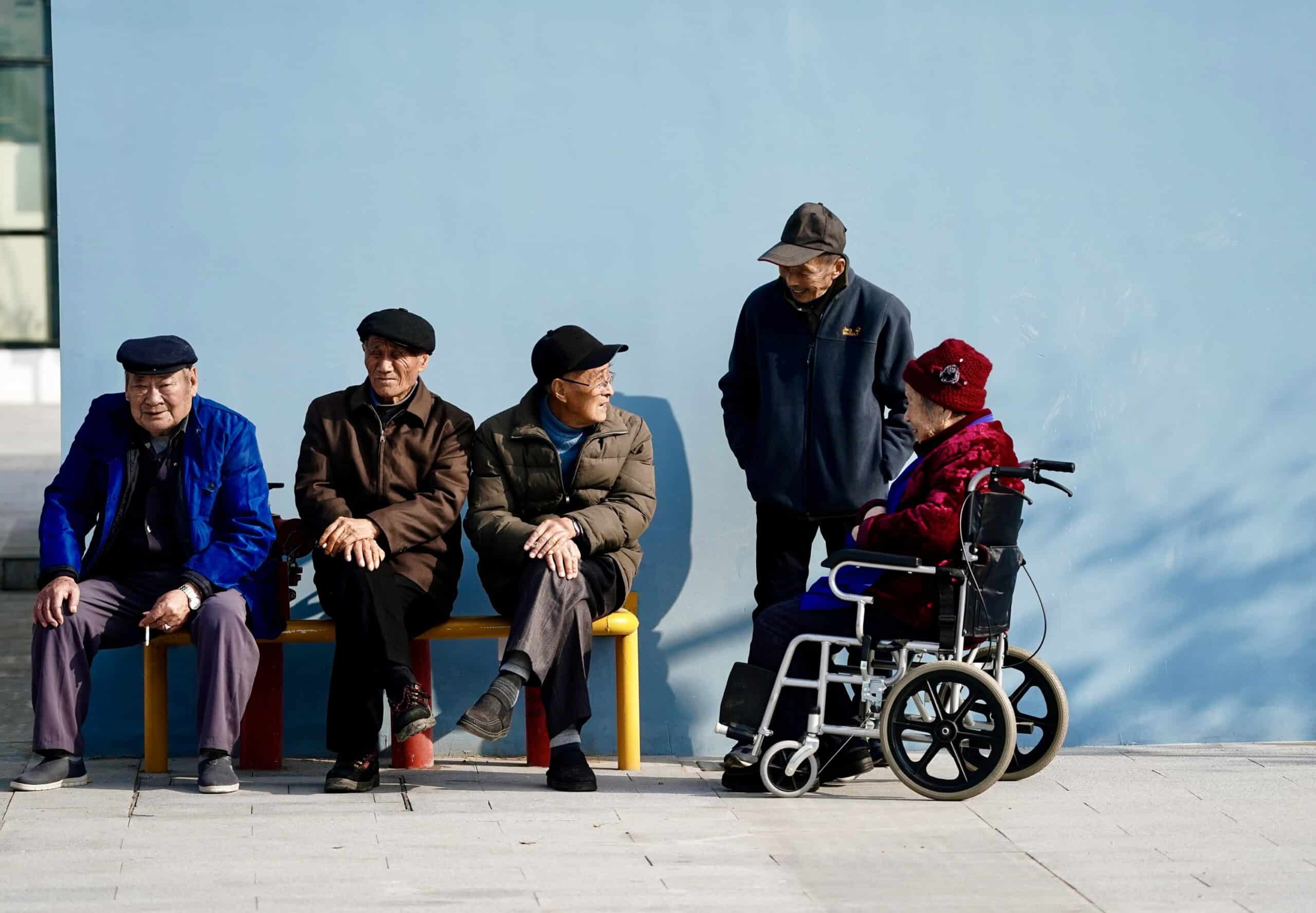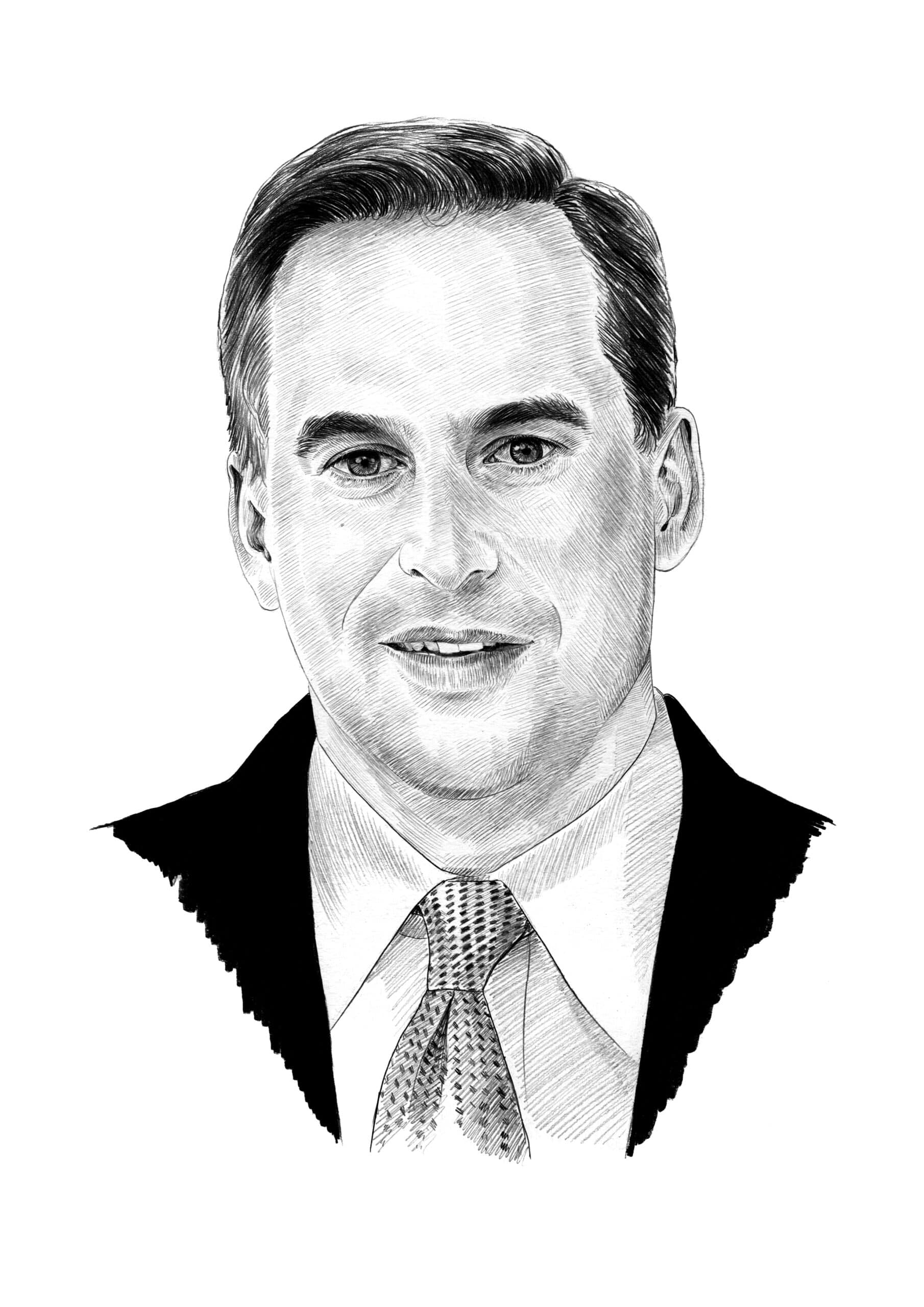
Over the years, courtroom seven in Hong Kong’s High Court Building has hosted a number of blockbuster trials. Last month, one of its most high-profile was scheduled to begin: that of Jimmy Lai, the media mogul and founder of the now defunct Apple Daily, once the city’s largest newspaper.
Since he was first detained three years ago, Lai — a longtime pro-democracy advocate and critic of Beijing — has already been sentenced three times for joining unauthorized protests, and once for fraud. But the most serious charge he is facing is for allegedly “colluding with foreign forces,” a crime under the city’s draconian national security law (NSL).
If convicted, the 75-year-old could face years behind bars. Yet more is at stake than his personal freedom: Lai’s trial and the processes around it have drawn international scrutiny on how Hong Kong’s legal system, long vital to the city’s status as Asia’s leading business and financial center, is changing under increasingly direct Chinese rule.
The fact that the billionaire Lai can afford to mount a no-holds-barred legal fight is, in turn, pushing Hong Kong’s authorities into defining the bounds of the NSL in ways that experts say could have implications for both individuals and businesses operating in the city.
There’s a deep emotional reaction to Lai’s pro-democracy activism — it’s not merely a government acting rationally. They’re acting in a way that is quite punitive.
Tom Kellogg, executive director of the Center for Asian Law
“The government is arguing, at least implicitly, that the international business community should still have confidence in Hong Kong’s legal system and judicial independence and the rule of law,” says Tom Kellogg, executive director at Georgetown University’s Center for Asian Law. “But there’s no clear line that demarcates which cases will be handled in accordance with the rule of law and which won’t.”
The remarkable amount of security surrounding Lai is one measure of the seriousness with which Hong Kong’s government views his case. On the crisp mid-December morning when his trial began, squadrons of police in full protective gear roamed the courthouse. An armed convoy blocked traffic along the 8.5 mile route the septuagenarian Lai was taken on from his maximum-security prison to the central business district where the courthouse is located.
“For years now, statements from central government officials have made clear that they hate Jimmy Lai,” says Kellogg. “There’s a deep emotional reaction to Lai’s pro-democracy activism — it’s not merely a government acting rationally. They’re acting in a way that is quite punitive.”
Lai’s case has proven to be agenda-setting for Hong Kong’s legal system since the start. A battle over whether Lai should be granted bail when he was first arrested in 2020 set a precedent for the government’s strict approach to pre-trial detention: The city’s jails currently hold a record high number of people awaiting trial.

After the courts initially sided with Lai, prosecutors appealed to the city’s top court, the Court of Final Appeal (CFA), to keep him behind bars. A final ruling in the government’s favor has made it harder for national security defendants to be released on bail, ensuring many activists and pro-democracy politicians remain locked up.
Another procedural fight kicked off when Lai hired British human rights law specialist Timothy Owen to his defense team last year. Foreign lawyers like Owen have long played a prominent role in Hong Kong’s legal system, partly due to historical links between the city and the United Kingdom. Hong Kong’s government has generally defended their presence — that is, until Lai employed one himself.
“[As a lawyer] from outside the jurisdiction, you don’t have to worry nearly as much about how many bridges you burn,” says Alvin Cheung, assistant professor of law at Canada’s Queen’s University and a former Hong Kong barrister, explaining why Lai might want to hire overseas counsel. “How likely is it if you are a Hong Kong barrister, facing the possibility of surveillance or worse, that you feel you can conduct a sufficiently robust defense?”
It’s clear that none of the important decisions [in Lai’s case] will be made in Hong Kong. If there’s even a risk, [the government is] going to kick the matter up to the NPCSC.
Alvin Cheung, a former Hong Kong barrister
After the CFA affirmed Lai’s right to engage Owen in early December, the Hong Kong government asked China’s highest rulemaking body — the National People’s Congress Standing Committee — to invoke a rarely-used constitutional power to issue an ‘interpretation’ that would overrule the local court. As the December 13 start date of Lai’s trial arrived, the NPCSC had not yet issued its interpretation, meaning that Owen was still technically allowed to represent Lai.
Yet Owen was not among the four barristers on Lai’s team in the packed courtroom that day: While Beijing dawdled, Hong Kong’s immigration department had withheld Owen’s work visa, forcing him out of the city. Owen has since come back to Hong Kong, but for a different case that doesn’t involve Lai.

At the December 13 hearing, a comment from Judge Esther Toh, one of the three specially-appointed national security judges overseeing Lai’s trial, explicitly acknowledged the extent to which the court’s proceedings depend on lawmakers in Beijing.
“Whatever is decided by the authorities on the mainland [with regard to Owen’s eligibility], we will all be [made] aware from the newspaper announcements,” Toh said.
Lai’s trial is now set to recommence in September, more than one thousand days after he was first charged under the NSL.
“It’s clear that none of the important decisions [in Lai’s case] will be made in Hong Kong,” says Cheung, the former barrister. “If there’s even a risk, [the government is] going to kick the matter up to the NPCSC.”
Even as he waits, Lai’s legal battles are continuing to reshape the relationship between Hong Kong’s judiciary and national security apparatus. When the NPCSC in Beijing finally handed down its interpretation on December 30, it expanded the powers of national security officials in the city, and clarified that in NSL-related cases, the city’s politically appointed leader — currently John Lee — would have the final say. That, experts say, is likely to mean that Owen will ultimately be barred from defending Lai.
Jimmy Lai decided to take a different route [to other national security defendants] perhaps because it looked like they were going to get him no matter what.
Tom Kellogg
“This interpretation actually has a much greater significance on Hong Kong’s legal system, because it affirms the unqualified power of national security [officials] in Hong Kong to react to and override judicial decisions,” says Eric Lai, a visiting researcher at King’s College London’s Dickson Poon School of Law, where he studies the NSL.
Lai adds that the interpretation could affect both criminal cases and civil disputes, with potentially far-reaching implications for Hong Kong’s business community.
“We’ve seen that in the mainland, economic security is considered part of national security,” he says. “In the future, if a foreign company has a dispute with a mainland company in Hong Kong [and] asks for overseas counsel, the other side could try to argue that because this dispute is between a state owned enterprise and a foreign company, this relates to national security.”
Lai himself at least appeared in good spirits in courtroom seven on December 13. During a break in proceedings, his daughter Jade, aged 44, exclaimed “Daddy!” and made a hand gesture towards him in the shape of a heart. Lai nodded and smiled.
“Jimmy Lai decided to take a different route [to other national security defendants] perhaps because it looked like they were going to get him no matter what,” says Georgetown’s Kellogg. “It’s a testament to his bravery to stand up to a system that looks like it’s trying to keep him in jail for the rest of his life.”

Eliot Chen is a Toronto-based staff writer at The Wire. Previously, he was a researcher at the Center for Strategic and International Studies’ Human Rights Initiative and MacroPolo. @eliotcxchen



